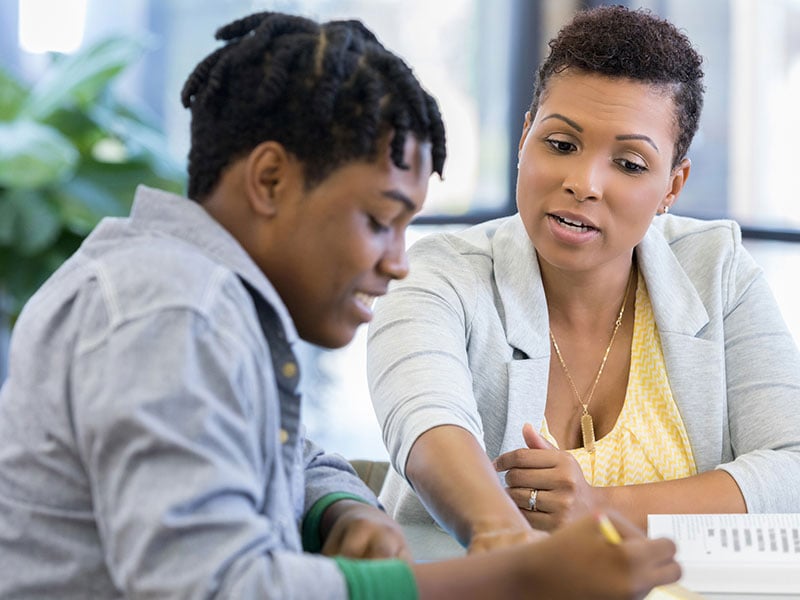Strategies for Communicating with Children about Ongoing International Crisis
March 11, 2022
Dee Norton Child Advocacy Center, the region’s leading resource to prevent abuse, protect children and heal families, is offering suggestions for communicating with children about current international events. Many children may experience a range of emotions from sadness and worry to confusion and anger when learning of the violence currently happening in Ukraine. Children may be exposed to graphic videos and rumors of another war, and parents should have open and honest conversations to help them work through what they are or may become exposed to.
“Over the past three years, our children’s lives have been filled with stressors, violence, unrest, and fear. The current crisis unfolding in Ukraine is complex and difficult for many adults to comprehend—let alone for a child to comprehend completely. As a trauma-informed organization, Dee Norton realizes that talking about hard topics is important for the well-being of children. Giving your child an opportunity to discuss how they are feeling about current events provides them a safe place to express their emotions and fears,” says Beverly Hutchison, Executive Director of Dee Norton Child Advocacy Center. “Whether it is during times like this, or on any given day, we must stand hand in hand to protect and support our children.”
To help children understand current events, Dee Norton is offering eight strategies to aid in the conversation:
- Start the Discussion:
- Talk about the incident with children/teens. This is an important time to model appropriate conversation around difficult topics and feelings. Before sitting down with a child, talk with other adults to process what they are hearing and address your reactions first. Provide a level of information and discussion appropriate for the child’s developmental level.
- What does the child already know? Ask the child what they’ve already heard about this crisis. As children talk, listen for underlying fears or concerns. Understand this information could change in the days and weeks ahead.
- For Preteens and Teenagers: From current events in class discussions, to social media, teenagers likely have heard or seen brief videos about the war in Ukraine. Ask them to show you the videos that they may have seen or shared amongst friends to better understand what it is they are viewing or may have questions about.
- For Preschool Children: Consider what they have seen or heard. Be mindful of exposing them to adult conversations. Do not assume they are too young to not sense your emotions. As noted above, listen, clarify, and address misinformation, misconceptions, and underlying fears or concerns.
- What does the child already know? Ask the child what they’ve already heard about this crisis. As children talk, listen for underlying fears or concerns. Understand this information could change in the days and weeks ahead.
- Normalize Fear and Emotion:
- Encourage your children/teens to express their different emotions surrounding this crisis. Avoid telling them the event is “far away” or “not to worry,” as this can invalidate their feelings and shut down future conversations. Lead by example and as developmentally appropriate be open about your fear and emotions while granting your child permission to express their own.
- Encourage Questions:
- Children may have some difficult questions about recent events. For example, a child may ask if another world war may occur. Be open and honest in acknowledging any reasonable likelihood of this as a risk. Be sure to remind them if they have any questions or confusion, they should ask a trusted adult.
- Gently Correct Misinformation:
- Take time to provide the correct information in language your children/teens can understand. If your child wants to watch or read about the current events, be present so you can clarify any misinformation.
- Monitor Media and Social Media Exposure:
- Children and teens absorb much of what they read and see in the media. There is truly no “good” amount of media exposure for preschool and elementary school-age children. However, older children and teens will likely have regular contact with traditional and social media, so consider limiting the entire family’s exposure and encouraging them to do the same.
- Be Mindful of Adult Conversations:
- Be mindful children/teens are sensitive to parents’ stress and it is common for children to listen to adult conversations. Often, children don’t understand adult conversations and fill in the blanks with inaccurate information. While the recent crisis has raised concerns for adults, discuss feelings and thoughts with other adults out of children’s presence.
- Be Patient:
- It may take time for children/teens to understand the current events and work through their feelings and thoughts about them. Be gentle with your child and have regular check-ins to make sure they can handle their stress and fear.
- Find a Way to Take Action:
- Choosing to take action may help your children/teens better manage their thoughts and emotions. If they want to get involved, find local ways to help raise money and supplies for Ukraine. Discuss with your child how these actions made them feel after.
- Extra Help:
- Should reactions continue or at any point interfere with children’s/teens’ abilities to function or if a parent is worried, contact local mental health professionals who have expertise in trauma. Contact the family’s physician, pediatrician, or state mental health associations for referrals to such experts.
As a Children’s Advocacy Center with core values of Compassion, Collaboration, and Commitment to Excellence, Dee Norton encourages the community to have hard conversations to make things better.


